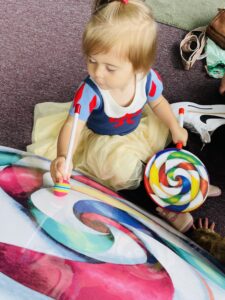Be You Because You Are Beautiful
Did you know that Harmony Garden just create a Diversity and Inclusion statement? If you haven’t, you should check it out at the bottom of this post. We are actively trying to create an inclusive and safe space for our clients. Individuals from all walks of life: no matter the religion, race, ability, who you love, how you identify. One of the ways we are doing this is by diversifying the songs we use in sessions. We are including more songs by artists of color and songs that celebrate our clients’ individuality. One of the amazing songs we have found is a song called: “I Like the Me I See” by Culture Queen. The lyrics talk about all the parts of our self that we love and what they do for us. Some of the original lyrics are:
I like the me I see!
I am who I’m supposed to be.
Though we’re diff’rent from another.
I won’t compare myself to others.
I like the me I see.
So I’ll stick to being me!
I like the me I see.
So I’ll stick to being me!
In our Tuesday Day Program this week, we sang this song and then decided to write our own lyrics to the song. We had a group of five individuals who shared the things they like about themselves: their smile, voice, friends, ears, and feet. These are all things that allow them to make music by dancing, singing, and playing. The lyrics that they created were beautiful and encompass everything that Harmony Garden loves about our clients so we wanted to share them with all of you.
At Harmony Garden, we are committed to celebrating and supporting diverse populations. This commitment is intrinsic to our values, beliefs, and our code of ethics because we are strongest when we embrace the full spectrum of humanity; regardless of what we look like, where we come from, our religion or spirituality, or who we love. We strive to root our music therapy practice in embracing, supporting, and respecting all of our clients, and creating equitable and safe spaces for all walks of life. We are dedicated to continually listening, learning, and validating our clients’ experiences and take pride in facilitating anti-oppressive music therapy practices.




